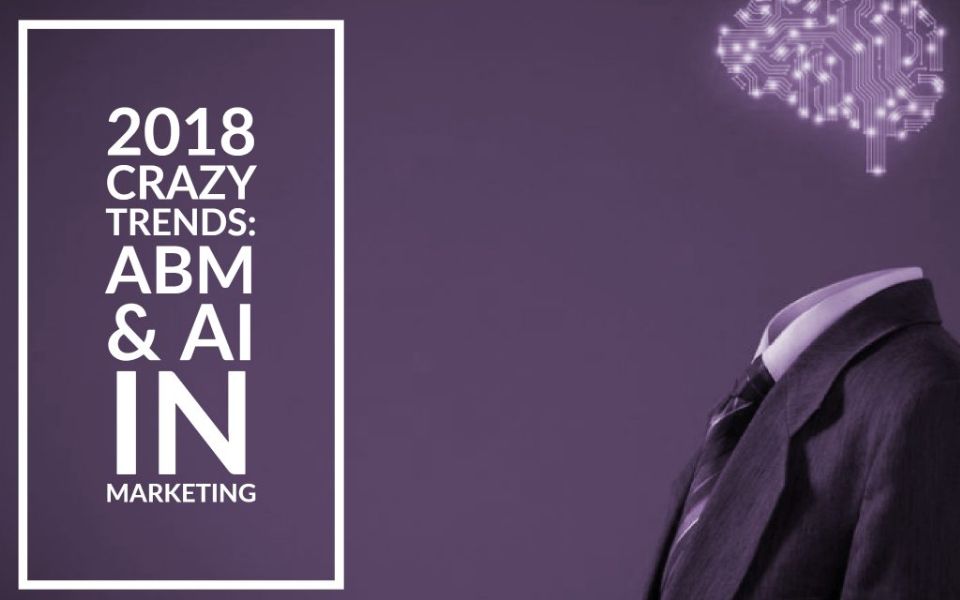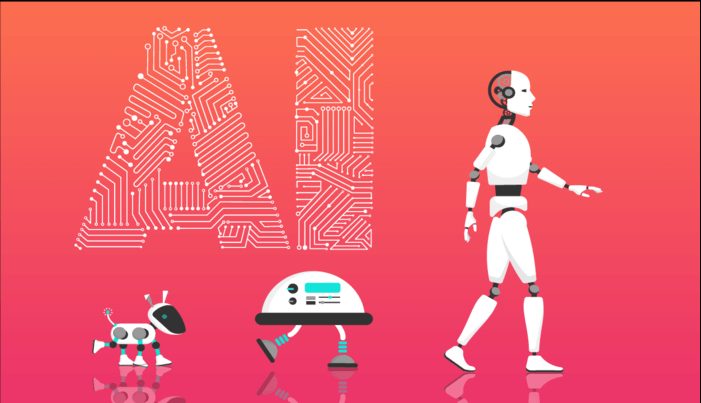Subscribe to Our Newsletter
Stay updated with the latest tips and strategies. Get additional discounts and alerts on offers.

“The Fourth Industrial Revolution is still in its nascent state. But with the swift pace of change and disruption to business and society, the time to join in is now.” – Gary Coleman, Global Industry and Senior Client Advisor, Deloitte Consulting
The above statement was made during the 2016 World Economic Forum meeting. We are now entering the year 2018. If you have been keeping an eye on newsfeeds, you must know that a lot has changed especially in the world of marketing technology. We are currently going through the Fourth Industrial Revolution. The age of technological approaches includes AI & ABM.
The first one used water & steam power. The second focused on electric power for mass production while the third was on electronics & information technology for automating production. The current one which is building upon the third is a fusion of technologies that are blurring the lines between physical, digital & biological spheres. Unlike its predecessors, the fourth industrial revolution is evolving at an exponential rather than a linear pace, and it’s disrupting almost every industry in every country.
The possibility of billions of people being connected through the medium of the internet, with unrivaled processing power, storage capacity & access to knowledge that too with pocket devices is seriously game-changing. Technology is meeting people where they are.
Websites remember our favorite settings, apps notify us if anyone shares our photos and the internet shows us emails that are ours. This is also why everyone is seeing different search results & more often different website content. It saves our time & makes our navigation through vast of data like a walk in the park. It is called Personalization & in the modern world as good as advertising since it makes no difference whether or not the information is of commercial nature. With all this, marketers should accept the fact that we are currently living in the future.
If you are in sales or marketing, AI & ABM are two of the buzzwords that must have been drilled into your head. The obvious things that ABM & AI have in common are the problems they solve in this era where brand promoters are finding themselves drowning in more “big data” than they can possibly process even in the B2B world.
Let’s start with Account-Based Marketing. Even though it has been around for quite some time in one form or another, no one knew it as Account-Based Marketing. What’s new are the tools & analytics that are used to measure & optimize the data. In simple terms, it is a strategy that is used to focus on prospects that truly fit ideal customer profiles.
An account is just another word for a specific client, company, or revenue stream that actually matters. ABM is the perfect answer to today’s information-fatigued consumers as well as marketers. Check out how ABM is going to change marketing in the coming year.

The majority of the ABM marketing discussions were dominated by influencers in 2017. In 2018 we will be seeing brands building communities that will bring their customers together around a shared mission with brand powering unlike the traditional approach of dominating the conversation. These groups are gonna create a network in the digital world that’s gonna influence purchasing decisions.
This will enable ABM marketers to use conversations occurring in such communities to understand their audience & hone their strategies.
Now, this is going to be a boon for businesses. The inability of communication between marketing & sales team has been an unsolvable problem for years. In the case of ABM, marketers will have to identify targets by thinking like sales guys instead of just having a broader view of the market.
Both teams will have to break down the silos as for this transferring leads should be a cyclical process than linear ones. With tools like marketing automation, the sales team can send back the leads to the marketing team that needs nurturing. All this will enable the creation of custom content around sales opportunities & tweak the metrics to support in generating revenues.
One challenge that marketers have been facing with ABM this year has been the creation of tech sacks that hobble together a variety of tools that don’t always gel together. As more tech-savvy millennials will be entering into senior management roles by 2018, researchers are expecting smarter tech sacks from ABM developers.
Marketing Automation Software will still remain at the core with more tools being added as market grows. This will enable the marketers to keep a keener eye to solutions that are specialized to their niche industry, targeted to individual pain points & easily integrate the tools they use across the organization.
ABM enables us to send messages across to the right audience but even the right people don’t buy at the first try. ABM specialists have already adopted the technique of remarketing but it’s going to grow a lot more in 2018. Marketers will need to remarket across a wide variety of channels in order to meet consumers where they are.
Now, let’s check the facts regarding Artificial Intelligence. A technology revolution is already here as we have seen marketers incorporating AI into their strategies this year, unlike the previous ones. For companies that sell products /services to businesses, communication is crucial. AI is said to be the final frontier that’s going to solve all the problems in this case. Read on to find out How AI will be impacting marketing in the coming year.

Marketers first have to identify what the goal for guest blogging is. Knowing this can help them out in determining the right kind of blogs to submit guest posts. The main goals for guest blogging are getting exposure to the website, positioning as an authority & establishing a brand presence in the industry which can be done by finding blogs that are reasonably sized & engaging the audience thus aiding in building backlinks.
Marketing platforms are becoming more intelligent, which allows greater personalization which in turn will lead to Highly Targeted Marketing with AI. This will eliminate one of the biggest problems in B2B marketing which is spamming. With AI brands will have the ability to scale personalized conversations to millions of prospects. From one-to-one email & dynamic ad copies & website content that’s adaptive, AI will enable brands to identify buyers’ interests at scale so that marketers can craft messages that resonate.
It’s no secret that we humans love to chat. A chatbot is a short-for-chat robot that is nothing but an artificially built platform that engages in conversations. Artificial Intelligence has enabled chatbots to build upon the previous conversations to become smarter & smarter. Using the help of software marketers can tweak these chatbots to ask questions, troubleshoot problems & even provide humor in content as & when required. Besides all these chatbots are willing to work 24/7 without any hesitation. Chatbot technology is here to stay & forward-thinking marketers should start implementing it in their strategy.
AI is going to change the ways of SEO. RankBrain is Google’s AI system that sorts through search results by using a totally different blend of algorithms. Through RankBrain, Google can categorize the most important things in search results. This is because, in certain searches, the meta title will be the most important thing while in others it might be the meta tags. RankBrain will also compare backlinks across different sites to determine which all are legitimate. This has enabled Google to flag sites that are having backlinks to random websites that don’t match the backlinks used by its competitors. All this means that the one-size-fits-all approach won’t work in SEO anymore.
AI will be changing the ways of tracking the results also aiding marketers to learn from the campaigns they have run previously to perform better in the future. Traditionally marketers used to analyze customer data manually & used to make educated guesses about the campaigns which are being changed by AI. AI can identify which content can generate more engagement with the audience & which ones can drive the most interest & close deals. Marketers can take advantage of the AI tools & predict which segments & strategies to follow by scouring the huge realm of customer data. This will help in boosting the effectiveness of ongoing campaigns by identifying underperforming content & compelling alternatives.
The world is yet to see the possibilities that ABM & AI have to offer. Both are already delivering results while AI in particular is somewhat new in the B2B arena, ABM is emerging as a tactic that works well for marketers. Integration of the two will be shaping the future of B2B marketing.
Also read on: TOP 10 B2B MARKETING PREDICTIONS FOR THE YEAR 2018
Show Some Love!

Subscribe to Our Newsletter
Stay updated with the latest tips and strategies. Get additional discounts and alerts on offers.
Related Articles
Subscribe to Newsletter
Stay up to date with the latest marketing, sales, and service tips and news.
